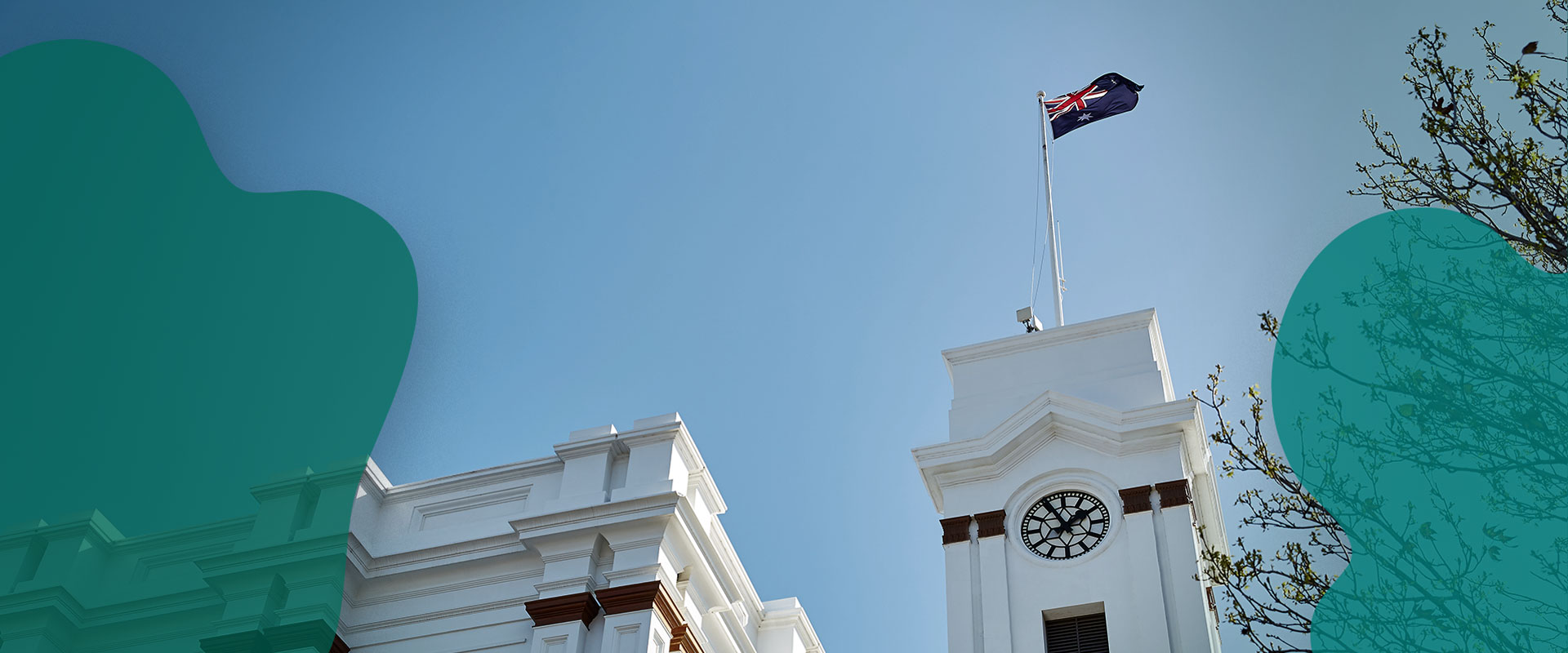Local Government Performance Reporting Framework
![]()
The new regulations set out our reporting requirements for Local Government in four broad areas.
-
- A governance and management checklist of 24 items.
- A set of prescribed service performance indicators, which aims to measure efficiency and effectiveness of a range of Local Government services.
- A set of four sustainable capacity indicators, which aims to assess council’s ability to meet agreed service and infrastructure needs.
- A set of 11 financial performance indicators, which aims to provide information on the effectiveness of financial management.
— Governance and Management Checklist
— Service Performance Indicators
To compare Glen Eira City Council’s results against other Victorian councils visit knowyourcouncil.vic.gov.au

Glen Eira City Council traces its Local Government origins and service to the community back to 1857. It is a duly constituted Victorian municipal council which exercises powers under, and is subject to the obligations prescribed in the Local Government Act 1989 (the Act).
Local Government is a distinct and essential tier of government consisting of democratically elected councils having the functions and powers that Parliament considers are necessary to ensure the peace, order and good government of each municipal district (Section 74A(1) of the Constitution Act 1975).
Council governs for and on behalf of the Glen Eira community.
The Act provides that the primary objective of a council is to endeavour to achieve the best outcomes for the local community having regard to the long-term and cumulative effects of decisions. The role of Council includes:
-
- acting as a representative government by taking into account the diverse needs of the local community in decision-making;
- providing leadership by establishing strategic objectives and monitoring their achievement;
- maintaining the viability of Council by ensuring resources are managed in a responsible and accountable manner;
- advocating the interests of the local community to other communities and governments;
- acting as a responsible partner in government by taking into account the needs of other communities; and
- fostering community cohesion and encouraging active participation in civic life.
Council is responsible for setting the strategic direction of the municipality, establishing and guiding policies, setting service delivery standards and monitoring the performance of the organisation.
Glen Eira’s nine Councillors are elected as representatives of all residents and ratepayers within the municipality.
Their broad roles and functions include:
-
- strategic planning for the whole of the municipality and a sustainable future;
- representation of the local community in Council’s decision-making;
- advocacy on a broad range of issues;
- co-ordination with other spheres of government, the private sector and non-government and community sectors;
- stewardship of the community’s assets; and
- facilitation of community participation.
Not all decisions are made at Council Meetings. Most decisions of an operational nature are delegated to the Chief Executive Officer (CEO) who, in turn, may delegate responsibility to other Council staff, ensuring Council’s activities are carried out effectively and efficiently. This system recognises the CEO’s statutory responsibility in managing the day-to-day operations of the organisation. Decisions under delegation may only be exercised in accordance with Council policies.
Electoral representation
Glen Eira is divided into three wards — Camden, Rosstown and Tucker — each with three Councillor representatives. Each ward currently contains more than 34,000 voters.
The Victorian Electoral Commission is required to conduct an electoral representation review at least every 12 years. The last review was in 2011 and resulted in minor boundary changes between Camden and Rosstown Wards. The new boundary took effect for the 2012 Council elections.
The last general election was held on 22 October 2016. Councils across Victoria held a general election on that date for a four year term.
The Glen Eira election was conducted by postal voting in accordance with Council’s resolution of 2 February 2016. The Victorian Electoral Commission conducted the election.
Local Law
On 24 November 2009, following extensive consultation and review, Council resolved to adopt a new single Local Law, the Glen Eira City Council Local Law 2009. The Local Law commenced on 25 November 2009. The Local Law prohibits, regulates and controls certain activities, practices and behaviours to ensure neighbourhood amenity is maintained, Council and public assets are protected, residents are not annoyed and a person’s property is not detrimentally affected.
The Local Law is divided into a number of sections including:
Use of Council Seal and Council Meeting procedures — regulates the operation of Council Meetings including the election of Mayor, rules of debate, adjournment of meetings and time limits, public participation and standards of behaviour.
Permits required — prescribes which activities require a permit from Council such as lighting fires; erection of temporary dwellings; placing industrial waste bins on public land; advertising signs; goods displays and proposed works on roads; and keeping of certain animals.
Prohibited — lists activities that are prohibited outright. These include overhanging trees and shrubs; inappropriate behaviour on public land; animal litter; dangerous and unsightly land; fire hazards; incinerators on residential property; and failure to number properties.
Parking schemes — regulates residential parking schemes and permits and ticketed parking areas. The Local Law also sets out how permits may be applied for and prescribes enforcement action against breaches.
On 26 April 2016, Council resolved to give notice of its intention to amend several clauses of the Local Law. In accordance with section 119(2) of the Act, a notice was given of the proposed amendments inviting submissions to Council by 1 July 2016. Council considered the submissions received and resolved to amend the local law on 19 July 2016.
The Local Law 2009 is available to download from Council’s website. It can also be inspected and copies are available from Council’s Service Centre.
The current Local Law will expire on 24 November 2019 and Council has commenced the process to review and remake the Local Law prior to the expiry date.
Documents and other information available for public inspection
A wide range of documents and publications are available to the public on Council’s website at www.gleneira.vic.gov.au including the Council and Community Plan, annual reports, annual budgets, the Local Law and Council-adopted policies and strategies.
In addition, certain documents and information are available for inspection by the public in accordance with the Local Government Act 1989 (the Act) and Local Government (General) Regulations 2015 as listed below.
Documents available for public inspection include:
- Details of overseas or interstate travel (with the exception of interstate travel by land for less than three days) undertaken in an official capacity by Councillors or any member of Council staff in the previous 12 months, including the names of the Councillors or members of Council staff and the date, destination, purpose and total cost of the overseas or interstate travel.
- A register of the interests of Councillors, members of special committees and nominated officers consisting of the last three returns that those Councillors, members and officers were required to submit under this Section.
- Agendas for and minutes of Ordinary and Special Meetings held in the previous 12 months kept under Section 93 of the Act except if the minutes relate to parts of meetings which have been closed to members of the public under Section 89 of the Act.
- A register of delegations kept under Sections 87(1) and 98(4) of the Act, including the date on which the last review under Section 86(6) and 98(6) of the Act took place.
- Details of all leases involving land which were entered into by Council as lessor, including the lessee and the terms and the value of the lease.
- A register of authorised officers appointed under Section 224(1A) of the Act.
- A list of donations and grants made by Council in the previous 12 months, including the names of persons or bodies which have received a donation or grant and the amount of each donation or grant.
- Copies of election campaign donation returns.
Council maintains a statement setting out the types of documents held by Council, what Council does, and how members of the public may access information about Council, which is available on Council’s website.
Where documents are not available for public inspection or available on Council’s website, then access to them may be sought in accordance with the Freedom of Information Act 1982 (FOI Act ). The FOI Act grants the public the right to seek access to all Council documents.
This general right of access is limited by a number of exceptions and exemptions, which have been prescribed to protect public interests and the private and business affairs of members of the community about which Council holds information.
Documents held by Council may be available outside the Freedom of Information process.
Enquiries about access to documents should be directed to Council’s Freedom of Information officer in the first instance.
Requests for documents under the FOI Act may be made online. Alternatively, a written request may be sent via email to foi@gleneira.vic.gov.au marked for the attention of the freedom of information officer, or mailed to:
Freedom of Information Officer
Glen Eira City Council
PO Box 42
Caulfield South Vic 3162
The request must specify the document required or, if unable to do so, give sufficient detail to enable the relevant document to be located. The request should indicate the form of access required (eg. view original document under supervision or obtain copies) and include details of the applicant’s name, address and telephone number for contact.
Applications must be accompanied by the prescribed fee. Other charges may also apply as prescribed by the Freedom of Information (Access Charges) Regulations 2014. Information about making an application is available on Council’s website.

Freedom of information requests received 2013–14 to 2017–18
| Details | 2013–14 | 2014–15 | 2015–16 | 2016–17 | 2017–18 |
|---|---|---|---|---|---|
| Total number of new requests | 28 | 41 | 28 | 27 | 51* |
| Requests determined not to be Freedom of Information Act requests | 0 | 1 | 1 | 2 | 9 |
| Access granted in full | 0 | 0 | 0 | 5 | 11 |
| Access granted in part | 19 | 25 | 16 | 8 | 12 |
| Other | 5 | 5 | 1 | 1 | 7 |
| Access denied in full | 1 | 0 | 3 | 7 | 4 |
| Requests still under consideration | 3 | 7 | 5 | 2 | 4 |
| Requests withdrawn | 0 | 3 | 2 | 3 | 4 |
| Number of decisions referred to the FOI Commission | 0 | 2 | 2 | 4 | 6 |
| Appeals lodged with VCAT | 0 | 0 | 0 | 0 | 1 |
Protected disclosure
The Protected Disclosure Act 2012 (the PDA) replaced the Whistleblowers Protection Act 2001 on 10 February 2013.
As required by the PDA, Council adopted a policy and a set of procedures relating to protected disclosures in August 2013. A full copy of the policy and procedures can be downloaded from Council’s website at www.gleneira.vic.gov.au or obtained from Council’s Service Centre.
The PDA is designed to encourage and facilitate the disclosure of information about improper conduct by public officers, including Council officers or Councillors. The PDA protects those people who disclose information and provides a framework for investigation and rectifying action.
The procedures adopted by Council establish a system for reporting disclosures of improper conduct or detrimental action by Council, its employees or Councillors. Disclosures relating to Council or its employees may be made to either Council’s Protected Disclosure co-ordinator or directly to the Independent Broad-based Anti-corruption Commission (IBAC), the Ombudsman, the Victorian Inspectorate or the Chief Commissioner of Police. A disclosure about a Councillor must be made to IBAC or the Ombudsman. Disclosures may be made by Council employees, Councillors, councils or the public.
Council is committed to the PDA’s aims and objectives. Accordingly, Council:
-
- does not tolerate improper or corrupt conduct by its employees, officers or Councillors;
- supports disclosures being made that reveal corrupt conduct, conduct involving a substantial mismanagement of public resources, and conduct involving a substantial risk to public health and safety or the environment; and
- will protect people who make disclosures from reprisals and give natural justice to the person who is the subject of the disclosure.
During 2017–18, no disclosures were made to Council that were required to be reported, pursuant to the provisions of the PDA, to IBAC.

Best Value and continuous improvement
The Local Government (Best Value Principles) Act 1999 requires the six Best Value principles be applied to all Council services since 31 December 2005. Best Value Victoria aims to ensure Local Government services are the best available and that they meet the needs of the community.
Continuous improvement
Glen Eira City Council has developed an organisation-wide approach to the Best Value Principles to ensure they are embedded in the culture and evident in all services. The Best Value Principles are applied universally in strategic and service planning and service reviews. The principles are:
NET COST OF SERVICES WE DELIVERED 2017–18
The downloadable PDF table indicates the services provided to the community by Glen Eira City Council during 2017–18 and how these performed against the adopted budget.
Each activity is described including the persons or sections of the community who are provided the services. The net cost of service can be influenced by community demand, government policy, expected income from grants and other factors not always regulated by Council.
1. People in care relationships who receive Council services; to people in care relationships; and to the wider community by:
- distributing printed material through relevant Council services;
- displaying posters on the Act at Council community venues; and
- providing a link to the Commonwealth Government My Aged Care website from the Glen Eira Council.
2. Council staff, Council agents and volunteers working for Council, who are informed about the principles and obligations of the Act by information on the care relationship included in:
- Council induction and training programs for staff working in Home and Community Care; and
- induction and training programs for volunteers working directly with the community.
Council has reviewed and modified policies, procedures and supports to include recognition of carers and has provided additional activities and resources to recognise the importance of the care relationship.


Council adopted a new Disability Action Plan in February 2017. A total 87 per cent of 148 actions outlined in the Disability Action Plan were achieved in 2017–18.
Over 2017–18, Council delivered:
- partnerships with local organisations to deliver inclusive programs and social enterprises for people with a disability;
- promotion of an accessible events checklist for Council staff and the community;
- an easy English version of the Disability Action Plan;
- National Disability Insurance Scheme (NDIS) information session and support to residents of Glen Eira;
- monitoring and review of access to Council facilities and services;
- monthly Auslan StoryTime sessions at Bentleigh Library;
- consultation with Council’s Disability Reference Committee;
- social support to more than 130 clients, and disability respite services to more than 110 clients throughout the Glen Eira community;
- disability awareness in school sessions to 10 local primary schools;
- 20 sessions of the Chat n Chuckle discussion group which connects community members who have acquired brain injuries;
- five sensory-friendly movie sessions attended by more than 250 people;
- a program of events in support of Social Inclusion Week;
- a Come and Try inclusive sports day at Glen Eira Sports and Aquatic Centre (GESAC) for International Day of People with a Disability;
- the development of an online disability awareness training program, YouMeUs, in collaboration with neighbouring councils; and
- a program of specialised disability awareness training sessions for Council staff and communications training for GESAC staff.
Click here to see further information on Council’s disability services.
The Domestic Animals Act 1994 requires Council to prepare a Domestic Animal Management (DAM) Plan at four yearly intervals and evaluate its implementation in the Annual Report.
Performance Indicators
Council continued the implementation of its four-year Domestic Animal Management (DAM) Plan. The DAM Plan addresses issues such as dogs at large; cat overpopulation; nuisance pets; and registration and identification.
Council has met or exceeded its targets in all but two of the nine performance indicators in 2017–18.
The cat registration target was not met, however cat registration numbers have been relatively stable over the past 12 months with an increase of 410 cats registered in 2017–18. The use of SMS messaging when registrations are due, has allowed Council to develop a more accurate depiction of registered animals.
The ratio of infringement to official warning target was not met for a second consecutive year and rose slightly on the previous period. We note this was not unexpected as Council conducted operations targeting dogs wandering at large.
The cat reclaim/return rate continues to be well above the target set, is industry leading and continues to increase. This has been a strong focus for Council’s animal management team over the past few years and is a positive outcome following the adoption of Council’s new Domestic Animal Management Plan 2017–2021. However, it should be noted these figures include cats that have been sold or adopted. Council acknowledges the exceptional work that our current pound provider (RSPCA) does in reducing the euthanasia rates by selling or adopting such a large number of cats.

Domestic Animal Management Plan – performance indicators
THE FOLLOWING TABLE PROVIDES AN ASSESSMENT OF THE YEAR ENDING 30 JUNE 2018:
| Indicator | Target (%) | 2013–14 (%) | 2014–15 (%) | 2015–16 (%) | 2016–17 (%) | 2017–18 (%) | 2017–18 Figures |
|---|---|---|---|---|---|---|---|
| Dog registration rate: | 85 | 88.4 | 88 | 88.1 | 92 | 89 | 12,072/13,558 |
| Cat registration rate: | 85 | 83.7 | 83 | 83.8 | 86 | 80 | 4,866/6,102 |
| Enforcement success rate: | 100 | 100 | 100 | 100 | 100 | 100 | 11/11 |
| Dog return/reclaim rate: (includes adopted/sold dogs) | 90 | 96.5 | 96 | 95.1 | 93 | 94.1 | 272/289 |
| Cat reclaim/return rate: (includes adopted/sold cats) | 20 | 61.3 | 75 | 65.41 | 71 | 73.9 | 119/161 |
| Domestic animal business compliance rates: | 93 | 100 | 100 | 100 | 100 | 100 | 7/7 |
| Dog desexing rate: | 70 | 75.7 | 77 | 78.2 | 79 | 80 | 9,670/12,072 |
| Cat desexing rate: | 80 | 91 | 92 | 92.7 | 93 | 94 | 4,582/4,866 |
| Infringements versus official warnings rates: | < 40 | 20.8 | 39 | 38.1 | 43.5 | 43 | 115/266 |
Click here to download Council’s Domestic Animal Management Plan 2017–2021
During the 2017–2018 financial year, Glen Eira City Council did not receive any ministerial directions under the provisions of Section 7e of the Food Act 1984.
During the 2017–2018 financial year, Glen Eira City Council did not receive any ministerial directions under the provisions of the Road Management Act 2004.
During 2016–2017, Glen Eira City Council did not enter into any contracts because of an emergency valued at $150,000 or more, specified in Section 186(5)(a) of the Local Government Act 1989.
Council did enter into a contract valued at $150,000 or more without engaging in a competitive process:
SprayIT Solutions (VIC) Pty Ltd
$ Value
$211,861.97
Vapour Barrier Defects Rectification Works
Date of contract
17/2/2017–25/1/2018
Explore more





